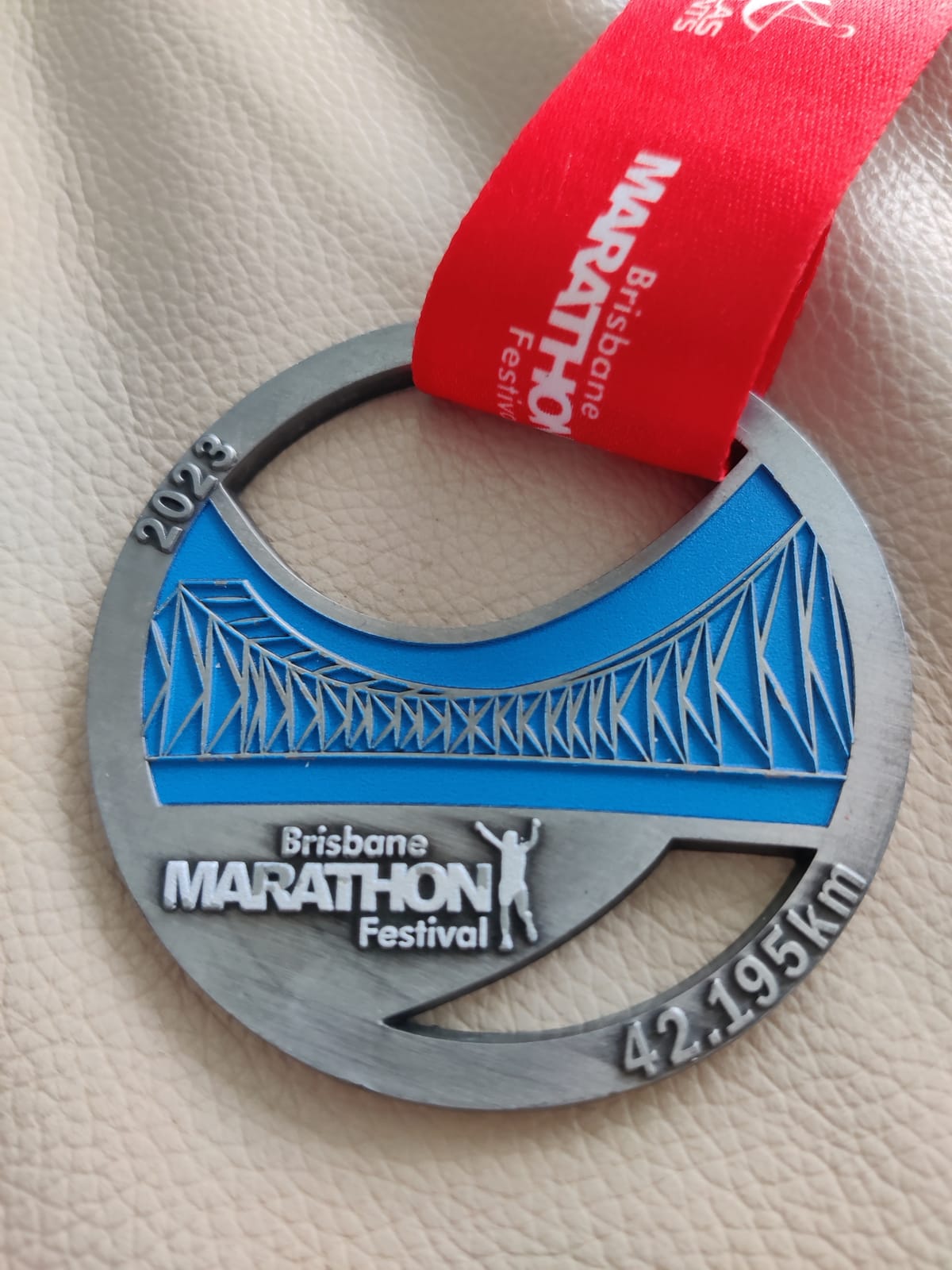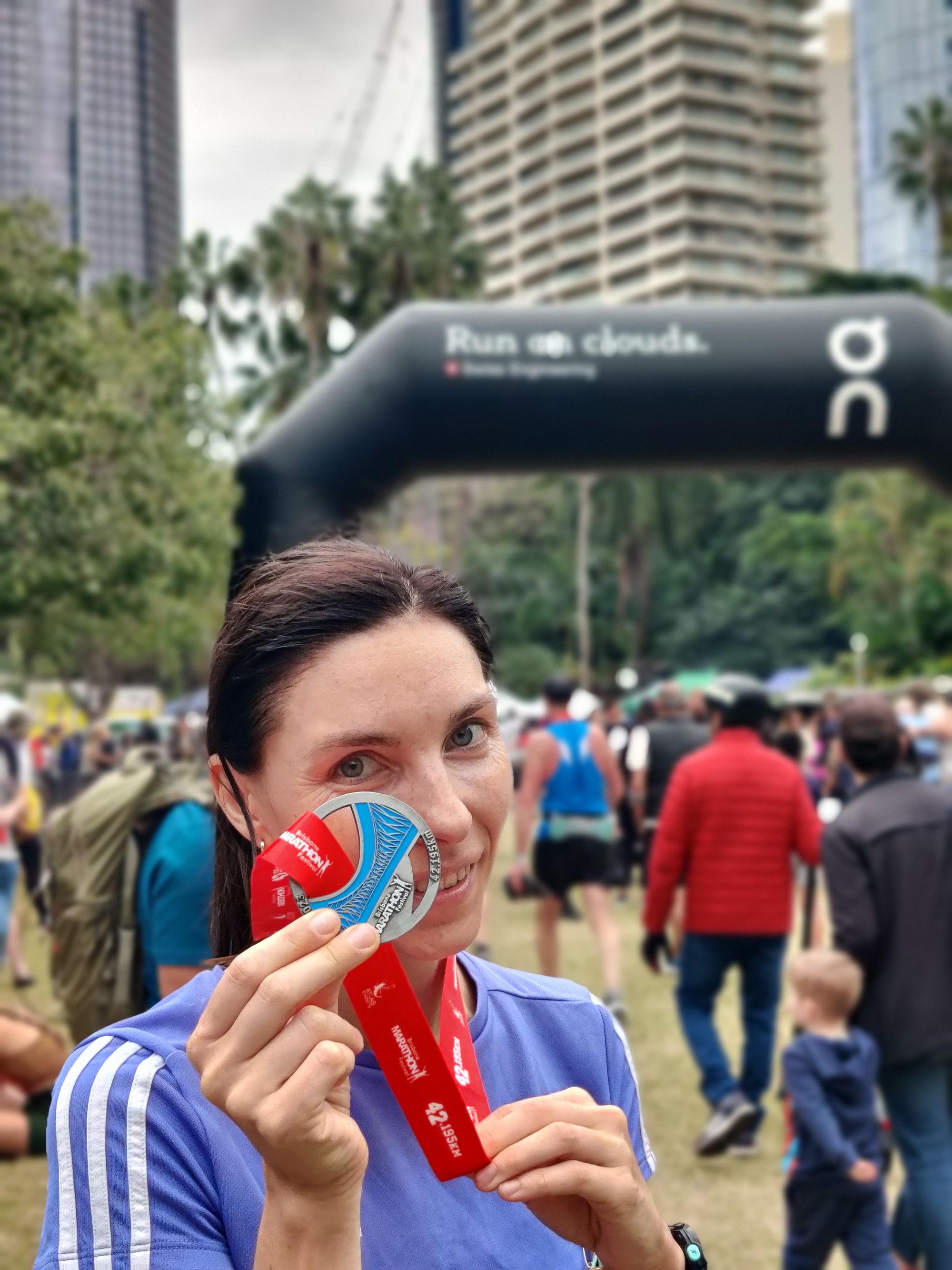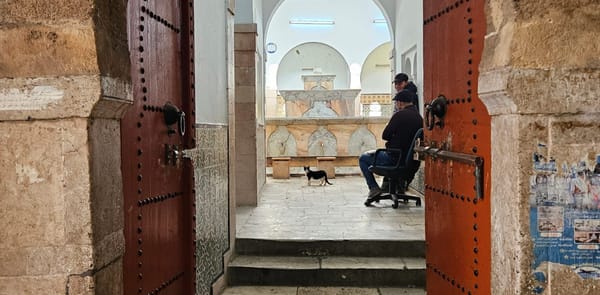I ran Brisbane Marathon 2023

Two days ago, 4 June 2023, I ran Brisbane Marathon, and the 4 hours 32 minutes it took me to reach the finish line now seem a bit surreal. They say you need to always remember the "why" when your body gets exhausted - usually around the 30-km mark, the dreaded "hitting the wall" moment. During the race I never asked myself "why", even when my side stitches made me stop and walk for a few kilometers here and there, slowing me down so much that I already knew I was not going to make it my personal best this time. I noticed supporters with a hand-made poster saying "4 months ago it seemed a good idea" - and I thought, "It still does!". I was one of the 1,099 people who entered the marathon this year, and I became one of the 904 who finished it.
My two previous marathons were very different. The first one, Reykjavik 2017, was amazing - partly because it was my first trip to Iceland. I then became a big fan of "destination races" - running in a completely new, unknown location, combining the excitement of the run with exploring. The second one, Athens 2018 - the "authentic" Marathon, where we ran from the town of Marathon to the Athens' epic marble stadium - a goosebump-inducing finish line.
The 2020 Malta Marathon was cancelled due to we all know what. I then had a break in long-distance running for four years, mostly doing local 5-10-km runs in Luxembourg and surroundings, and a lot of beautiful trail runs in Belgium's Ardennes.
When we moved back to Australia in January 2023, I almost immediately signed up and started training for Brisbane Marathon. My 4-month training plan, culminated in a 30-km run approximately 4 weeks before the race. The last month of training was a bit sporadic due to various trips but I still tried to stick to the schedule. However, I felt that I was a bit less prepared than for the previous two races, especially when I looked at my historical Strava records.
In the morning of the race, I arrived at the start and found my start zone somewhat between 4:30 and 4:15 pacers. I did not think I was going to make a personal best this time but I still wanted to try stick to the 4:15 one, planning to keep a consistent pace throughout the course. What I did not expect was side stitches. From around 13km mark, those ongoing, painful diaphragm spasms slowed me down, made me stop, walk, stop again, and of course they made me feel a bit disappointed - what did I do wrong, was it my super light breakfast or the gels and water, was it my breathing patterns or the pace? I struggled for 10 km, on and off, with other runners encouraging me not to stop ("it will only get worse if you do!") until a female runner stopped next to me and said, "Just breath in normally - but try to breathe OUT all the air in your lungs". And this worked magic. I was so grateful to her, as if she had just given me a painkiller (in a way, she did). I ran faster again and at some point - around the feared 30-km mark - finally caught up with a 4:30-finish pacer.
The 30-km mark is jokingly said to be the actual beginning of a marathon distance. Most runners do a 30-32 km run as the longest training run a week or two before a race, and we know that our bodies can do it. But after 30 kms glycogen (a carbohydrate stored in muscles, which our body uses for energy) stores tend to finally get depleted and the brain goes into an energy-saving mode, which often brings along extreme exhaustion and negative thoughts. Although I was taking energy gels and had felt pretty good until then, it was exactly when I started talking to my inner negative voice. It was repeating, "It is too hard, I cannot do it anymore", and I kept saying to it, "Almost there, you can". I was wearing my Athens Marathon t-shirt for a reason, too - as a tangible reminder. But I would not be able to do it without Kirsty, the pacer. She was very encouraging, and, like a running couch, in her loud positive voice kept saying to us, "Stay positive! Stay hydrated! You are doing great! You are amazing, you are totally smashing it, 4:30 is a hell of an achievement, you must be proud of yourself!". This kept me alive and running at the best of my abilities. Simple words do go a long way.
"Less than a parkrun left!"
"Less than a kilometer left! Dig deeper!"
I pushed as hard as I could, to that turn to the finish line, and another turn, and here are all the people cheering, and my family giving me high-fives, someone random saying "go Katya!", and the finish line. Water, more water, a slice of orange, a stretch, a medal. I was so happy.
Marathon is so much more than just running. To me, it is about finding the strength to fight the negative voices in my head, to gratefully accept the encouragement and support others offer from their heart, and also finding time to support others even when they seem to be okay, which is often not so regardless of what they try to show to themselves and others. It is also about learning that there are much less limits than I may think to what I can do - but at the same time, I do need to listen to my body and respect it. Finally, it is about taking responsibility - like in paragliding, where noone else except me is responsible for my safety and my flight/run, and whether I enjoy it or suffer through it depends on my decisions, informed and weighted.
My legs are not sore anymore, and the heartbeat is back to normal, but the incredible sense of achievement will stay with me; every race will be different, so I will just keep running.


